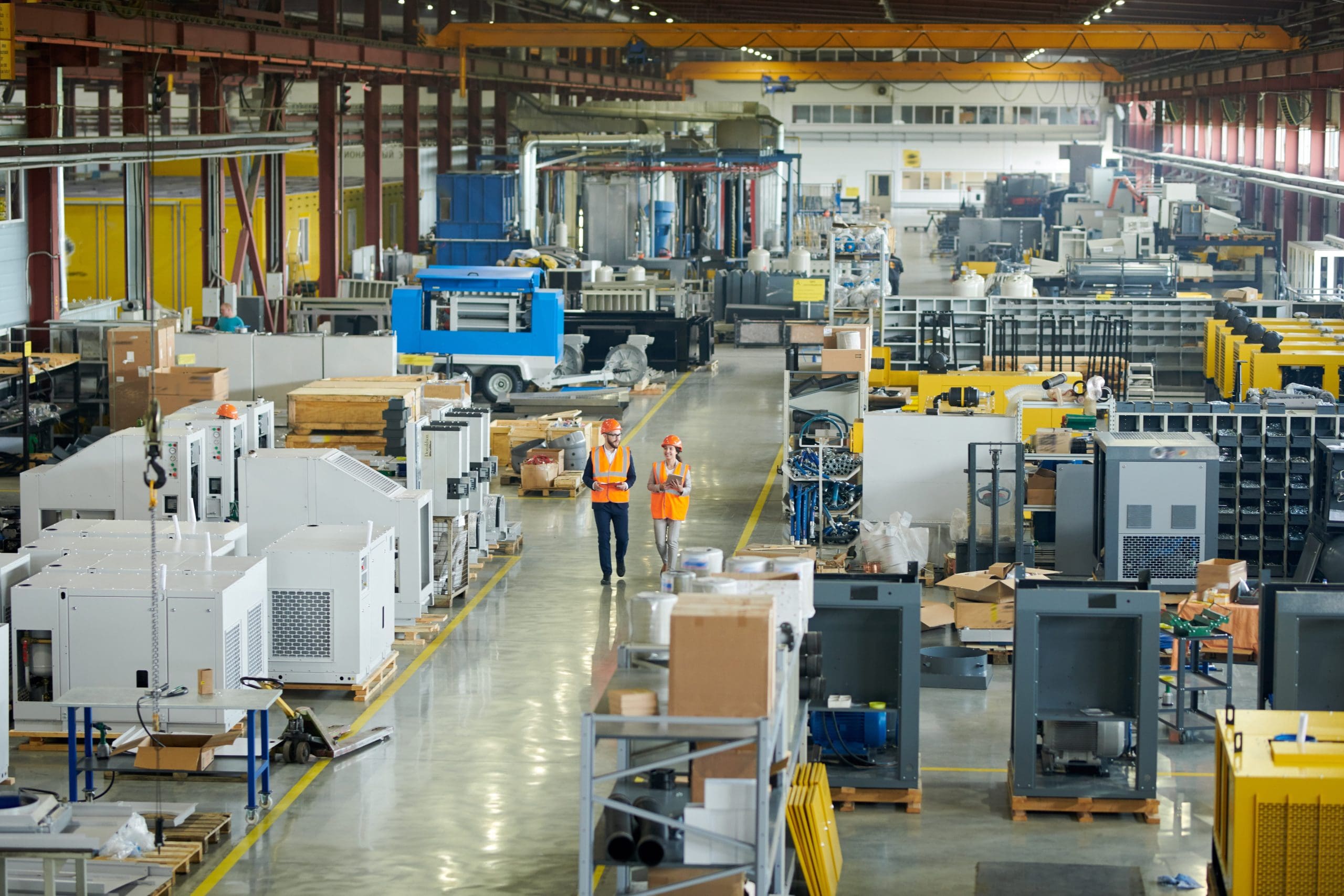Whether you’re a seasoned veteran or new to entrepreneurship, the exhilarating feeling of owning and operating your very own business is second to none. However, what most business owners don’t realize is the plethora of factors to consider prior to developing and selling a product. One of which is finding the perfect product manufacturer. Luckily for you, we did the heavy lifting and compiled a list of tips to help you find the right partner that would assist you in creating and producing your product. Keep reading to learn more!
What is a product manufacturer?
A manufacturer is defined as a person or a company engaged in the development and production of finished products. Typically, manufacturing involves the use of skilled labor and machinery and equipment to create goods to be sold to consumers. Product manufacturers play an integral role in the success of a business as it serves as the foundation to a company’s supply chain. Manufacturing companies also contribute to the economy through increased job creation and economic activity.
What are the different types of product manufacturers?
In this section, we will explore the three main types of product manufacturers and practices. Check them out below:
Make-to-Stock (MTS)
Make-to-Stock, or MTS, is a production strategy used by businesses to gauge production commodities based on forecasted sales and expected demand. This type of product manufacturing strategy is a conventional method where commodities are produced on a larger scale to maximize the use of labor and equipment. However, one big downside to using this “push” production system is that one simple error may spell disaster for your cash flow and the shelf life of your products.
Make-to-Order (MTO)
Make-to-Order (MTO) is entirely different compared to the Make-to-Stock method. This business production strategy is based on actual customer demand. MTO enables companies to produce goods only after customers have placed an order for products based on their specifications – eliminating the need for “cookie-cutter” styles and reducing stock wastage. This product manufacturing technique works well with products that can be easily made or assembled. If you’re planning to make use of the MTO strategy for your business, it’s important to note that there may be an increase in cost and production time since products are custom-made.
Make-to-Assemble (MTA)
The Make-to-Assemble (MTA) production strategy, also known as Assemble-to-Order (ATO), combines both the significant components of MTS and MTO wherein a company assembles a product only after an order has been placed. In a typical MTA scenario, the assembly of a product is initiated after a sales order has been generated and the customer has specified their requirements. Businesses can then respond to an order through the use of readily available materials that can be customized with little added time needed.
How to find a product manufacturer?
Researching “how to manufacture a product” or “how to find a manufacturer for your product” would be useless if you don’t have a complete grasp of your business’s capabilities. The most important thing to remember is that not all businesses and not all manufacturers are the same. Your product specifications may better fit the expertise of one manufacturer as opposed to another. The best course of action to take is to look inwards and understand what you, as a business, need. If you’re wondering where to start, check out some tips below:
- Is there a demand for your product? Before investing in product development, it’s crucial to determine if there’s enough demand for your product. Understanding if there is enough demand for your product gives you an overview of the market, who your customers are, and how profitable your product idea is.
- Domestic vs Overseas. First things first: Do you need a domestic or overseas manufacturer? A domestic manufacturer is a company that produces goods in the country that you are located. On the other hand, an overseas manufacturer produces goods from another country. When choosing between a domestic and an overseas manufacturer, it’s important to weigh the pros and cons associated with each model and identify whether it aligns with your business model.
Domestic Manufacturing Advantages
-
- Easier communication
- Higher labor standards
- Better product quality
- Greater oversight on production
Domestic Manufacturing Disadvantages
-
- Can be expensive
- Limited production capabilities
Overseas Manufacturing Advantages
-
- Easy access to a skilled workforce
- Greater production variety
- High-volume capability
- Fewer legal and economic regulations
Overseas Manufacturing Disadvantages
-
- Businesses can encounter cultural barriers
- Quality control concerns
- Minimum order quantities often involve large-scale orders
- Risk of losing intellectual property
- Check online listings. It’s also important to check listings online. The Better Business Bureau hosts a portal that lets you gauge a manufacturer’s capabilities without having to do tedious site visits. While this will not provide you with a complete overview of a manufacturer’s competency, it’s a great place to start!
- Ask for a referral. Asking for a referral should be a core part of your evaluation of potential manufacturing candidates. Reach out to family, friends, and business partners and ask if they can refer manufacturers based on your product specifications. Asking for a referral may be an effective way to gain insight into a particular manufacturer since you’re asking the people closest to you about their honest opinion.
- Don’t focus on the price. Pricing – One common pitfall when it comes to finding a product manufacturer is putting too much emphasis on price. Before anything else, you should first focus on the quality of production if you want your customers to be happy. Keep in mind that getting the best deal from your suppliers does not necessarily mean negotiating the lowest possible price. Rather, other factors such as payment terms, product quality, and logistics should also be taken into consideration.
What to look for in a product manufacturer?
Now that you have done your due diligence when it comes to finding the right product manufacturer, it’s now time to validate their capabilities.
- Technical know-how – Once you’ve identified the type of manufacturer you’re looking for, the next thing to consider is their expertise and technical know-how. Does your potential manufacturer produce quality products that are sturdy and fit for consumption? What type of products do they specialize in? Are they able to send product samples? These are just some of the factors to consider before partnering with a manufacturer. Remember, your supply chain heavily relies on a great partnership between you and your manufacturer. Make sure to look into quality standards, production practices, and client testimonials.
- Production capabilities – One rule of thumb is to take a look at how big their facility is. Having an established factory supporting your business allows you to scale your products as you grow and expand. If you’re serious about bringing your products to a bigger market, having the support of a big factory is what you need. The last thing you want is to keep worrying about the quality of your products and if they will be delivered on time. You don’t want to keep switching manufacturers because of safety and quality issues, right?
Supply Chain Risks You Need to Consider
As with most things in business, there are certain risks to take into account. However, with proper due diligence and research, you will be able to place preemptive measures to eliminate some of the headaches that you may encounter when finding the right manufacturer for your business.
- Federal, state, local regulations – As a business owner, one of the first risks to consider is taxes and regulations. However, it’s understandable that you don’t have the time to learn the ins and outs of business practices in another state or another country. The quick fix? Consider hiring a sourcing company. A sourcing company will help you identify the best manufacturer for your product and ensure that the final product fulfills your expectations.
- Labor concerns – Whether it’s poor working conditions or a lack of skilled labor, businesses must make certain that their products are being made by manufacturers that have sound labor practices to ensure product quality and efficacy. Staying on top of your manufacturer’s labor standards will prevent you from facing liability issues down the road.
- Quality control – In manufacturing, quality control guarantees that products are well-built and are free from defects. Conduct a site visit to personally inspect a potential manufacturer’s quality control measures. And once you’ve sealed the deal, make sure to schedule frequent site visits. By scheduling frequent factory visits, not only are you showing how serious you are about building a business relationship with your manufacturer but it will also give you a deeper insight into the amount of care and attention to detail being given to your products.
- Intellectual property risks – For many businesses, intellectual property is often the most important thing to keep secure. Protecting your IP means you’re preventing copycats from stealing your million-dollar product idea. Before making hasty decisions, make sure to secure the necessary trademarks, copyrights, and patents for your product. When choosing a potential manufacturer, also ask about their intellectual property security protocols. In this way, you can take necessary legal action in the event of an IP infringement.
- Financial risk – Failure to consider the previously mentioned factors may put your company at serious financial risk. From equipment failure to delayed shipments, it would be wise to consider another option to manufacture your products and avoid tying up cash on future inventory orders. Ever heard of Kickfurther?
How can Kickfurther help your business?
Kickfurther is the world’s first online inventory financing platform that enables companies to access funds that they are unable to acquire through traditional sources. We connect brands to a community of eager buyers who help fund the inventory on consignment and give brands the flexibility to pay that back as they receive cash from their sales. This alleviates the cash-flow pinch that lenders can cause without customized repayment schedules allowing your brand to scale quickly without impeding your ability to maintain inventory.









